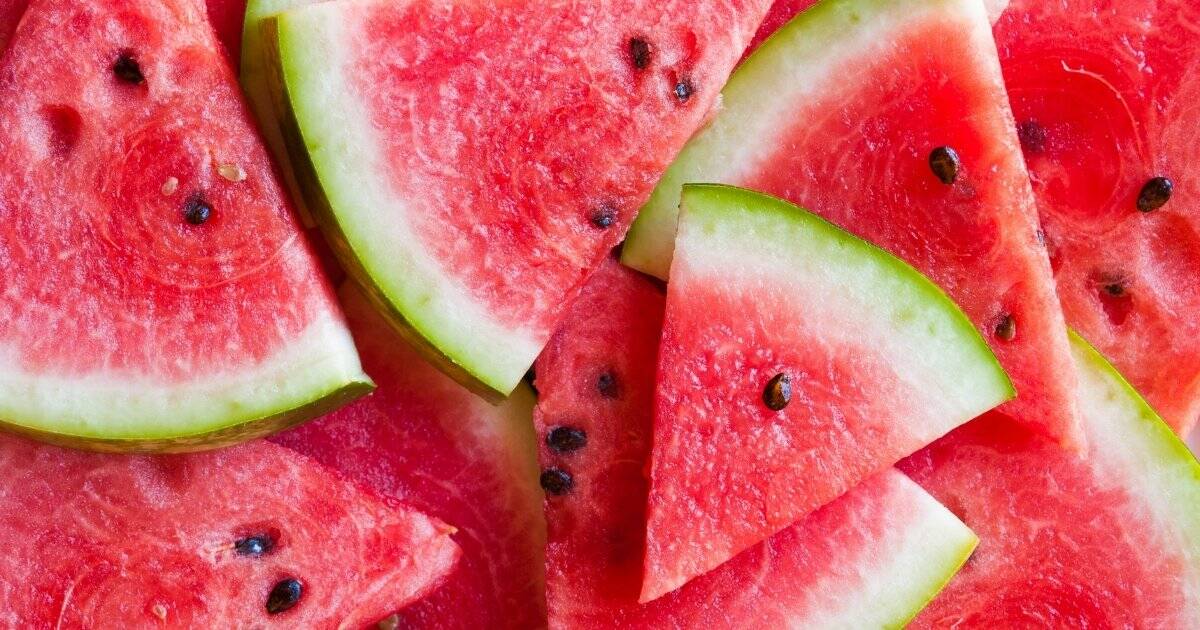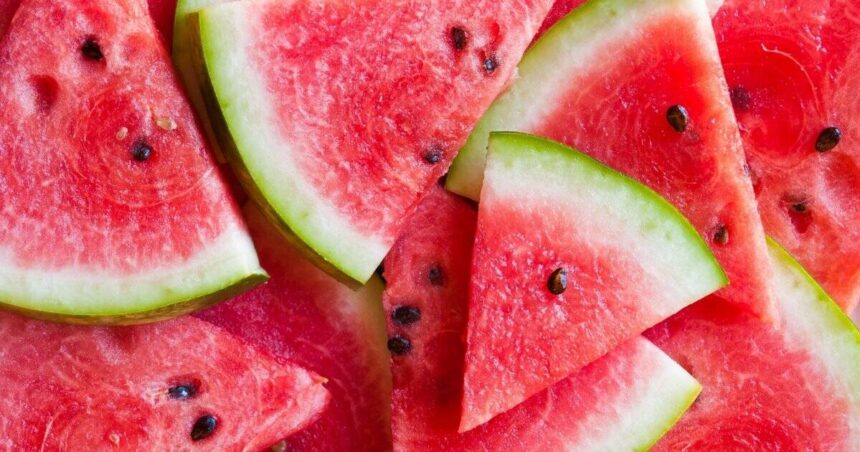There’s something to beat a refreshing slice of watermelon, especially on a hot afternoon.
Fruits are almost ubiquitous in summer family meals, barbecues and social gatherings and are grown all over the world. In fact, there are over 1,000 types of watermelons!
However, what makes fun and refreshing snacks for most people can affect blood sugar levels in people living with diabetes.
In this article, we will outline the pros and cons of eating watermelon for people who live with diabetes, as well as how to incorporate (and) this fruit into your life and daily diet.
What are the health benefits of eating watermelon?
Eating watermelons has many benefits. Below are the health benefits of regularly consuming this pink sweet fruit.
Full of vitamins and minerals
Watermelon contains a variety of vitamins and minerals, including potassium, magnesium, and vitamins A and C. It also has very few calories due to being a fruit, with only 46 calories per cup.
Also, watermelon cups only have 11.5 carbohydrates, making it easy to use insulin for bolus bolus.
The bright pink color indicates that it is a rich source of antioxidants such as carotenoids, lycopene, and cucurbitaquin E.
It can relieve muscle pain and improve exercise performance
Watermelon also contains citrulline, an amino acid that helps improve athletes’ athletic performance. Replenishing citrulline can also help reduce muscle pain in exercisers.
How it works is that this compound helps to inflate blood vessels, relieve the mind of the extra effort to pump blood throughout the body, and improve exercise performance and recovery.
Watermelon is great because it provides much needed hydration during exercise, as well as citrulline.
In one study, three groups performed different formulations. One is just watermelon juice, the other is a control drink with watermelon juice supplemented with extra citrulline. For both drinks, drinks containing watermelon juice improved muscle pain after exercise and improved heart rate recovery compared to groups with control drinks.
Watermelons may also be suitable for people with diabetes who may need hypoglycemia snacks when exercising. Watermelons provide enough carbohydrates to help treat hypoglycemia without overdoing carbohydrates or sugar.
Furthermore, it is a natural energy source, with no additional ingredients or chemicals.
It may improve skin health
Vitamins found in watermelon are important for the health and maintenance of the skin. Vitamin C helps to produce collagen, a protein that keeps the hair stronger and keeps the skin supple when eaten, drunk or applied topically.
One study found that higher vitamin C intake correlated with less chances of developing dry skin and wrinkles. Still, one serving of watermelon contains 14% of your daily recommended daily intake of vitamin C.
Vitamin A is also extremely important for skin health, as it helps repair damaged skin cells and create new skin cells. It also promotes wound healing.
One serving of watermelon contains 5% of the daily recommended daily intake of this vitamin.
It may help digestion
In addition to its richness of vitamins, minerals and healthy antioxidants, watermelon contains 0.6 grams of fiber per serving, which is necessary for healthy digestion.
Water and fiber help food move the intestines more easily, and including plenty of healthy fruits and vegetables during your diet can prevent diarrhea, constipation and digestive problems.
Eating fiber helps keep your bowel movements regularly.
One study found that people with low fluids and low fiber intake are more likely to suffer from constipation. More reasons to include watermelon in your diet!
Another study found that eating watermelon is correlated with weight loss and fullness. This is a welcome sign for those who want to lose weight.
The disadvantages of eating watermelon
Eating watermelons has some drawbacks, especially if you have diabetes. Below are some of the reasons you can choose to avoid this fruit.
Watermelon is mainly carbohydrate
This sweet fruit provides a source of various vitamins and minerals, but does not contain other macronutrients.
This can be a difficult food to eat if you’re suffering from diabetes, as carbohydrate-only foods tend to spike your blood sugar more quickly.
In fact, watermelons have a glucose index (GI) of 80, but carbohydrates are quite low for fruits, so their glucose load is 5.
Pairing watermelon with protein-rich sides helps to reduce the rapid rise in blood sugar levels that may be seen when eating fruit.
It’s not very fulfilled
The watermelon is very tasty, but it’s not a very fulfilling snack. This allows people to eat it quite regularly. Note that serving sized watermelon is 1 cup, which is 1 cup, equivalent to a typical 1 inch thick slice of melon.
However, since fruit is more than 90% water, people tend to go back to a few seconds and a third!
Each cup has 11 grams of carbohydrates, but having three or more servings allows you to turn this treat into a high-carb, high-calorie dessert fairly quickly.
It can cause cardiovascular problems
People who suffer from severe hyperkalemia (high potassium levels) should not eat more than 1 cup of watermelon per day.
Potassium is important for maintaining electrolyte function in the body, keeping muscles and bones strong, and maintaining heart health.
However, if you already have high potassium levels, eating watermelon can cause excessive potassium in the blood, causing pulse rate, irregular heartbeat, and other cardiovascular problems.









